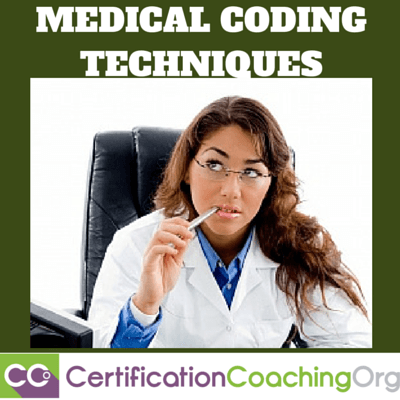Is Medical Coding Hard?
(Proven Medical Coding Techniques That Work) – According to Pam Brooks, coding manager for Wentworth-Douglas Hospital, “Medical coding is not difficult for the right person”. It requires attention to detail because nothing can be missed when processing patient information and everything needs to be assigned the proper code.
The most challenging point comes for students that are just starting out. It requires the knowledge of anatomy, physiology, pathophysiology, and medical terminology to successfully learn the coding systems, says Denise Reitmeyer, Rasmussen College HIT program coordinator.
With all of the background information that is needed, it is not something that can be learned through a single course, says Brenda Edwards, coding & compliance specialist for KaMMCO. It takes a little bit of grunt work at the beginning but a solid educational program will give students all the tools they need to learn.
In today’s post, let’s look at these 3 medical coding techniques that work — whether you are a novice to the medical coding field, or taking a CPC exam, or online training programs, these tips and techniques would help you achieve that success you need to land your first medical coding job!
Medical Coding Jobs – Best Paying Specialties Video

Medical Coding Tips for Beginners
Learn the Basic Guidelines
Learn the most important rules for being an effective, compliant, and competent medical coder. State and federal governments have laid out a number of specific rules to govern medical coding. These rules make sure that patients are treated correctly, insurance companies only billed for services rendered, and doctors paid correctly and in a timely manner. Because the system is so complex, and involves many different parties, it is essential for everyone to stay in compliance with these medical coding guidelines.
Some guidelines include:
- The specificity of the diagnosis code: Each diagnosis code has to be coded to the highest level of specificity, so the insurance company knows exactly what the patient’s diagnosis was.
- The correct reporting of procedure codes: There are too many rules and regulations to go into here. There are specific ways to code each visit, which help identify the service that was provided to the patient.
- Reasonable and customary charges: Regulating bodies also suggest that providers charge only “reasonable and customary” rates for their services. This prevents over-inflation of medical fees.
- Procedure code modifiers: When certain procedure codes are sent on the same claim form, they sometimes require medical billing modifiers, which help differentiate between the codes that were charged on the date of service.
Source: http://www.mb-guide.org/medical-coding-guidelines.html#ixzz3lnE83tSM
Learn the Specialty
Because coding is such a detail-oriented position and the coder’s work affects nearly every area of a medical practice, a novice coder can be quickly overwhelmed. When beginning a medical coding career, there are several tips to make the job easier and make your work better. New medical coders often come out of a generalized educational program. This is a good foundation, but if you are working in a specialized practice, such as a radiology firm, you most likely need to dig deeper to understand some of the subtle coding nuances. It is common for office procedures to carry multiple codes, and many times the office staff takes for granted that you know what those procedures and codes are. Spend time with the practice manager learning about the flow of the office and standard procedures so that you do not miss any codes that could prevent the office from being paid properly.
Source: http://work.chron.com/tips-beginner-medical-coding-23568.html
Get Certified
In order to start working as a medical coder, you will need to pass your certification test which consists of two main tests: the Certified Professional Coder (CPC) Test and the Certified Coding Specialist-Physician Based (CPC-P) exam. However, the field that you would like to enter might also determine whether you will need to take any additional tests. Conversely, you are required to pass these two main exams in order for you to attain CPC certification.
When you’re already certified, you can certainly advance your career in medical coding — your first step to a career in healthcare and increases your chances of being hired and retained in a competitive job market. Source: https://www.aapc.com/certification/cpc/
Check out CCO’s CPC certification online courses and online medical billing and coding training program.
![[CCO] Certification Coaching Organization LLC [CCO] Certification Coaching Organization LLC](https://www.cco.us/wp-content/uploads/2015/05/CCO-Logo-2015-d3-500px.png)
